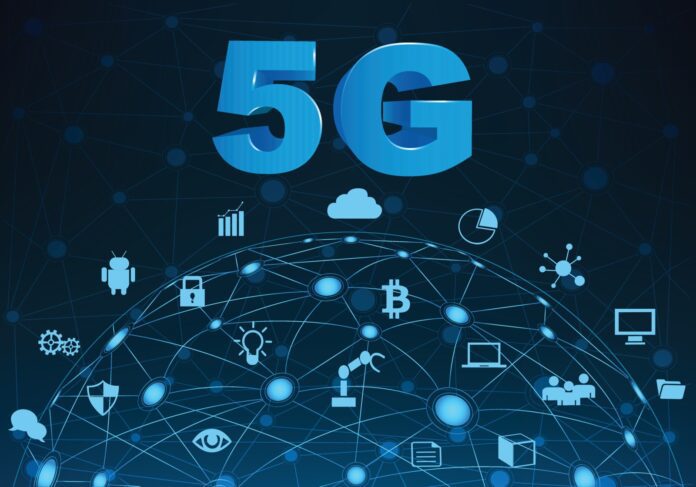The world of telecommunications is seeing continued progress with the adoption of 5G technology. According to data from 5G Americas, the global number of wireless connections exceeded 1.1 billion by the end of 2022. The number of connections to fifth-generation telecommunications technology doubled every year since its commercial introduction at the end of 2018, reaching 922 million connections at the end of the third quarter of 2022.
North America leads the way in 5G adoption, with a total of 108 million 5G connections and 506 million LTE connections as of the end of Q3 2022. The region added 14 million 5G connections in the quarter, representing a 15.47 percent increase compared to Q2 2022. The rapid adoption of 5G technology in North America is a testament to the region’s foresight in recognizing the potential of this transformative technology
In Latin America and the Caribbean, 4G LTE remained strong through the end of 2022, with 530 million connections in Q3 2022, representing a quarterly growth of 2.14 percent. However, 5G is also expected to play an increasingly relevant role in the region, with an estimated 22 million 5G connections by the end of 2022 and 399 million by 2027.
Chris Pearson, President of 5G Americas, said: “5G continues to make significant progress around the world. The foundation for this new era of innovation is given by spectrum, standards and a growing ecosystem of key technologies that are being adopted by operators, providers and users alike”.
5G Americas and TeleGeography reported that the number of commercial 5G networks reached 250 worldwide, and that number is estimated to have reached 253 by the end of 2022, with a total of 397 by the end of 2025. This represents a significant increase in investment in 5G networks in many regions around the world.
Global 5G connections are projected to accelerate again in 2023 to approach 2 billion and reach 5,900 million by the end of 2027, according to data from Omdia. With the growth in both North America and Latin America, 5G technology is set to bring significant progress and new opportunities for innovation and advancements for users across the globe.
5G security concerns are paramount
5G technology is poised to usher in a new era of digital innovation, with advancements in speed, capacity, and connectivity that will enable unprecedented levels of automation and interconnectivity across various industries and sectors. However, as the deployment and adoption of this technology gains momentum, it is imperative to address the various security concerns that arise in tandem. The advent of 5G networks, which are designed to support a proliferation of devices and handle a deluge of data traffic, renders them potentially susceptible to a gamut of malicious cyber attacks. Moreover, the multifaceted nature of 5G infrastructure and devices, involving multiple stakeholders and technologies, creates multiple attack surfaces that must be mitigated. As 5G enables Industry 4.0, the amount of data being generated and transmitted will also significantly increase, presenting a higher risk of data breaches and cyber threats. Thus, the security of 5G networks must be given paramount importance to prevent unauthorized access, protect sensitive information, and maintain the reliability and availability of these networks.
“5G networks will be the backbone of the world’s economy, and their security is critical for economic growth and national security.” –
Dan Coats, former US Director of National Intelligence.
Economic Potential of 5G: The Impact on Growth and Job Creation
5G technology is poised to be a formidable catalyst for economic growth and job creation, according to research conducted by IHS Markit, projecting a substantial $3.5 trillion in global economic output by 2035. The proliferation of 5G networks will engender a plethora of opportunities for businesses and individuals to leverage the enhanced speed, capacity, and reduced latency of this technology, to create new revenue streams, enhance existing services and products, and cultivate new innovations.
The deployment of 5G networks will enable the connection of a plethora of devices, with significantly improved connectivity and responsiveness, making the Internet of Things (IoT) a reality, thus enabling the emergence of Industry 4.0, improving automation, and boosting productivity across various sectors. Additionally, 5G networks will enable the deployment of sophisticated applications like autonomous vehicles, smart cities, telemedicine and precision agriculture, amongst others, all of which would drive economic growth and create new employment opportunities.
The rollout of 5G networks would also necessitate the creation of new jobs in the telecom, construction, engineering and other sectors, as well as new jobs that will emerge as a result of 5G-enabled services and products.
The economic benefits of 5G are considerable, but in order to fully leverage these benefits, a conducive environment for investment, innovation and entrepreneurship is crucial. This includes the availability of spectrum and a supportive regulatory framework, as well as the development of a conducive ecosystem for the proliferation of devices and services.



